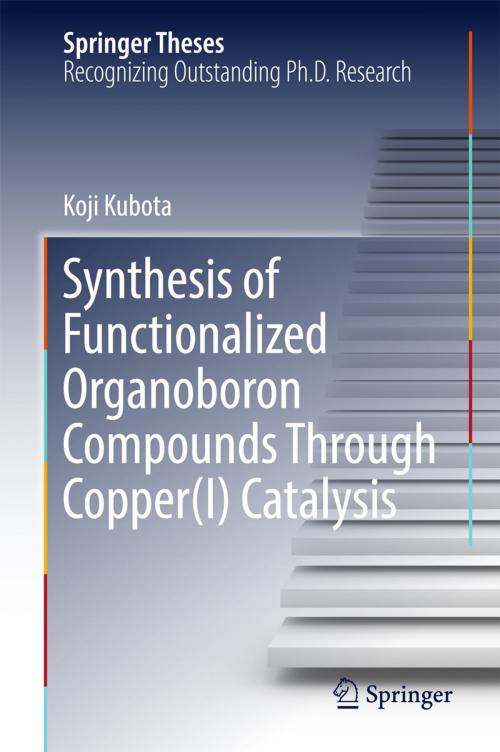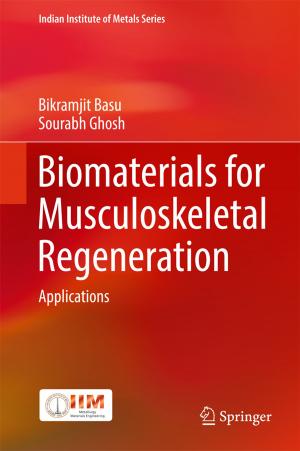Synthesis of Functionalized Organoboron Compounds Through Copper(I) Catalysis
Nonfiction, Science & Nature, Science, Chemistry, Technical & Industrial, Organic| Author: | Koji Kubota | ISBN: | 9789811049354 |
| Publisher: | Springer Singapore | Publication: | June 27, 2017 |
| Imprint: | Springer | Language: | English |
| Author: | Koji Kubota |
| ISBN: | 9789811049354 |
| Publisher: | Springer Singapore |
| Publication: | June 27, 2017 |
| Imprint: | Springer |
| Language: | English |
This book describes state-of-the-art borylation chemistry using copper(I) catalysis. Enantioselective reactions are included to afford a variety of functionalized, complex organoboronate esters, which will find wide application in asymmetric synthesis, drug discovery, and material science. Organoboron compounds are recognized as useful reagents in organic synthesis; therefore, great effort has been devoted to the development of a simple, mild, and efficient method for their preparation in the past several years. However, the synthesis of functionalized organoboron compounds remains a challenging issue because known reactions often require the use of highly reactive organometallic carbon nucleophiles. This book focuses on conceptually new, formal nucleophilic copper(I)-catalyzed borylation reactions with diboron compounds that show high selectivity and excellent functional group compatibility. Theoretical studies based on density functional theory calculations to understand the reaction mechanisms have also been described. Advances in this novel borylation chemistry will allow the rapid and efficient synthesis of complex molecules with potentially interesting properties in combination with the boron functionalization process.
This book describes state-of-the-art borylation chemistry using copper(I) catalysis. Enantioselective reactions are included to afford a variety of functionalized, complex organoboronate esters, which will find wide application in asymmetric synthesis, drug discovery, and material science. Organoboron compounds are recognized as useful reagents in organic synthesis; therefore, great effort has been devoted to the development of a simple, mild, and efficient method for their preparation in the past several years. However, the synthesis of functionalized organoboron compounds remains a challenging issue because known reactions often require the use of highly reactive organometallic carbon nucleophiles. This book focuses on conceptually new, formal nucleophilic copper(I)-catalyzed borylation reactions with diboron compounds that show high selectivity and excellent functional group compatibility. Theoretical studies based on density functional theory calculations to understand the reaction mechanisms have also been described. Advances in this novel borylation chemistry will allow the rapid and efficient synthesis of complex molecules with potentially interesting properties in combination with the boron functionalization process.















